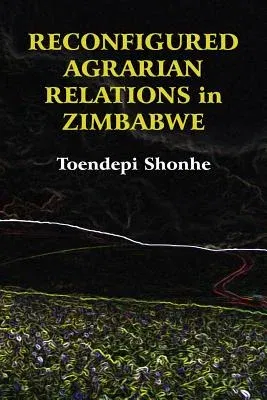Toendepi Shonhe
(Author)Reconfigured Agrarian Relations in ZimbabwePaperback, 16 December 2017

Qty
1
Turbo
Ships in 2 - 3 days
In Stock
Free Delivery
Cash on Delivery
15 Days
Free Returns
Secure Checkout
Print Length
358 pages
Language
English
Publisher
Langaa RPCID
Date Published
16 Dec 2017
ISBN-10
9956764213
ISBN-13
9789956764211
Description
Product Details
Author:
Book Format:
Paperback
Country of Origin:
US
Date Published:
16 December 2017
Dimensions:
22.86 x
15.24 x
1.88 cm
ISBN-10:
9956764213
ISBN-13:
9789956764211
Language:
English
Pages:
358
Publisher:
Weight:
476.27 gm

